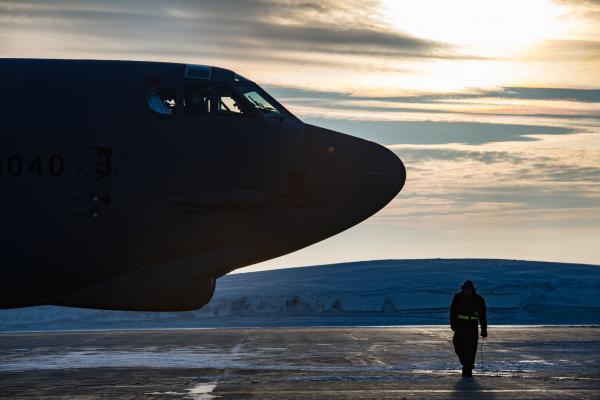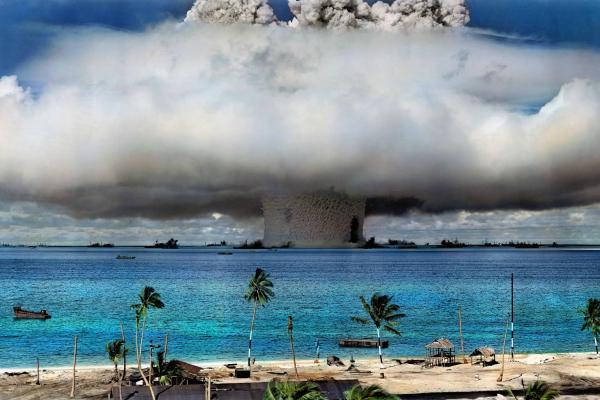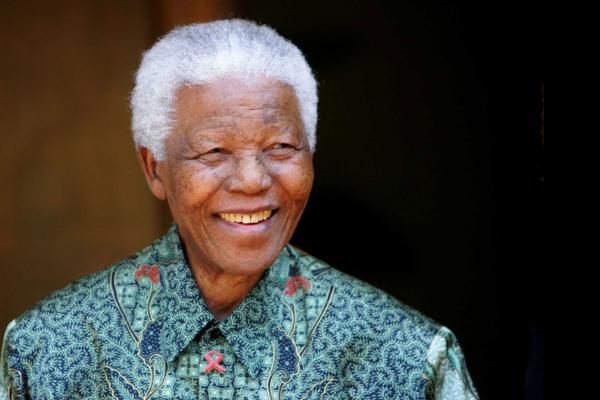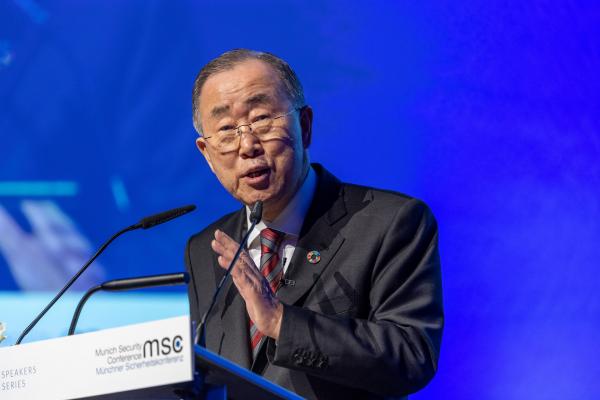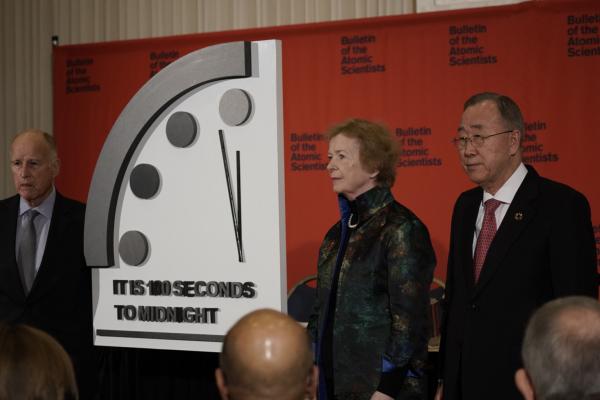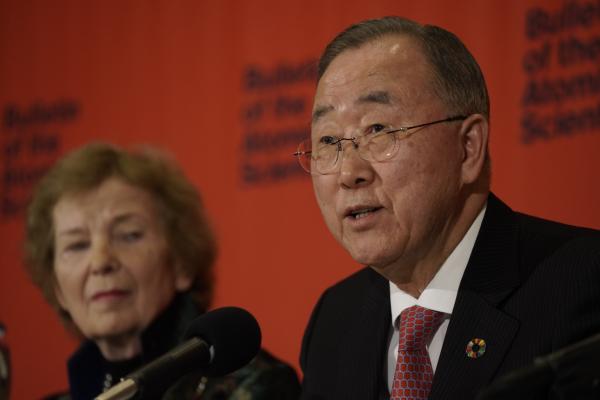Nuclear weapons are still the greatest threat to world peace. NATO must take action now to protect humanity

The risk of a nuclear war is higher than at any time since the end of the Cold War. Mary Robinson warns leaders meeting at NATO's London Summit in London to seize the opportunity to prevent a new arms race. Published in The Independent.
Nuclear weapons and the climate emergency are the two existential threats facing humanity today.
Across the world, there is a growing popular movement putting real political pressure on leaders to act boldly and urgently on climate. But the nuclear threat does not attract as much attention from politicians, policymakers or the public.
This is a grave mistake, because the risk of a nuclear war is higher than at any time since the end of the Cold War.
Relations between the two main nuclear powers are at a worryingly low ebb, shrouded in mistrust and confusion and there is no constructive dialogue between them on the subject.
If the New START (Strategic Arms Reduction Treaty) is not renewed in 2021, there will be no nuclear arms agreement in force between Russia and the United States anymore, and no remaining limits on the size of their deployed nuclear arsenals.
The upcoming NATO summit in London is a critical opportunity for leaders from member states to impress upon President Trump the urgent necessity to extend New START in the interest of collective security.
Those of us who grew up in the era of US-Soviet confrontation took the threat seriously.
We marched in the streets for peace and disarmament, and we cheered when Ronald Reagan and Mikhail Gorbachev declared in 1987 that “a nuclear war can never be won, and should never be fought”.
But in the decades that followed the fall of the Berlin Wall, the collapse of the Soviet Union and the withdrawal of intermediate-range weapons from European bases, a dangerous complacency was allowed to take hold that nuclear weapons were somehow “old news”.
Today, the world faces the dangerous prospect of a new nuclear arms race between the United States and Russia. This will have cascading effects on other nuclear states – both declared and non-declared – as well as countries who may feel encouraged or compelled to pursue their own nuclear ambitions.
The termination of the Intermediate-Range Nuclear Forces (INF) treaty poses a severe threat, primarily to European peace and security, and greatly reduces the chances of maintaining any sort of arms security control in the world.
All nuclear powers – the five permanent members of the UN Security Council (US, Russia, China, France and the UK) as well as Israel, India, Pakistan and North Korea – need to face up to their responsibilities and work together to reduce – and ultimately eliminate – their nuclear stockpiles.
Other countries who shelter under the so-called “nuclear umbrella”, including NATO member states like the Netherlands, also have a vested interest in seeing more extensive and rapid disarmament.
Last week in The Hague, I presented some proposals of The Elders (the group of independent global leaders founded by Nelson Mandela, of which I am Chair), aimed at raising public awareness of the issue and suggesting ways for progress towards nuclear non-proliferation and disarmament.
The first of our suggestions is that every one of the nine nuclear armed states should make an unequivocal “no first use” declaration.
Next, 2,000 US and Russian weapons remain on a dangerously high state of alert. The highest priority should be given to taking as many as possible of those weapons off this status.
Also, a quarter of the worldʼs stockpile of nuclear weapons remain operationally deployed. This is unnecessarily excessive and poses high risks to global security.
Finally, the number of nuclear warheads in existence should be reduced from its present estimated level of almost 14,000 to around 2000, with Russia and the US reducing to no more than 500 each. That remains enough to destroy the planet several times over.
Next year, 2020, marks the 75th anniversary of the end of Second World War and of the birth of the nuclear age, when atomic bombs dropped on the Japanese cities of Hiroshima and Nagasaki resulted in the mass deaths of hundreds of thousands.
But it also marks the 75th anniversary of the founding of the United Nations, built on the ashes of the terrible conflict that had raged for six long years and also on the memory of the failure of the pre-war League of Nations to halt the rise of fascist military aggression.
We all need to recommit to the values of multilateralism that underpin the UN in the year ahead, so we can bequeath a peaceful, liveable world to our children and grandchildren.



